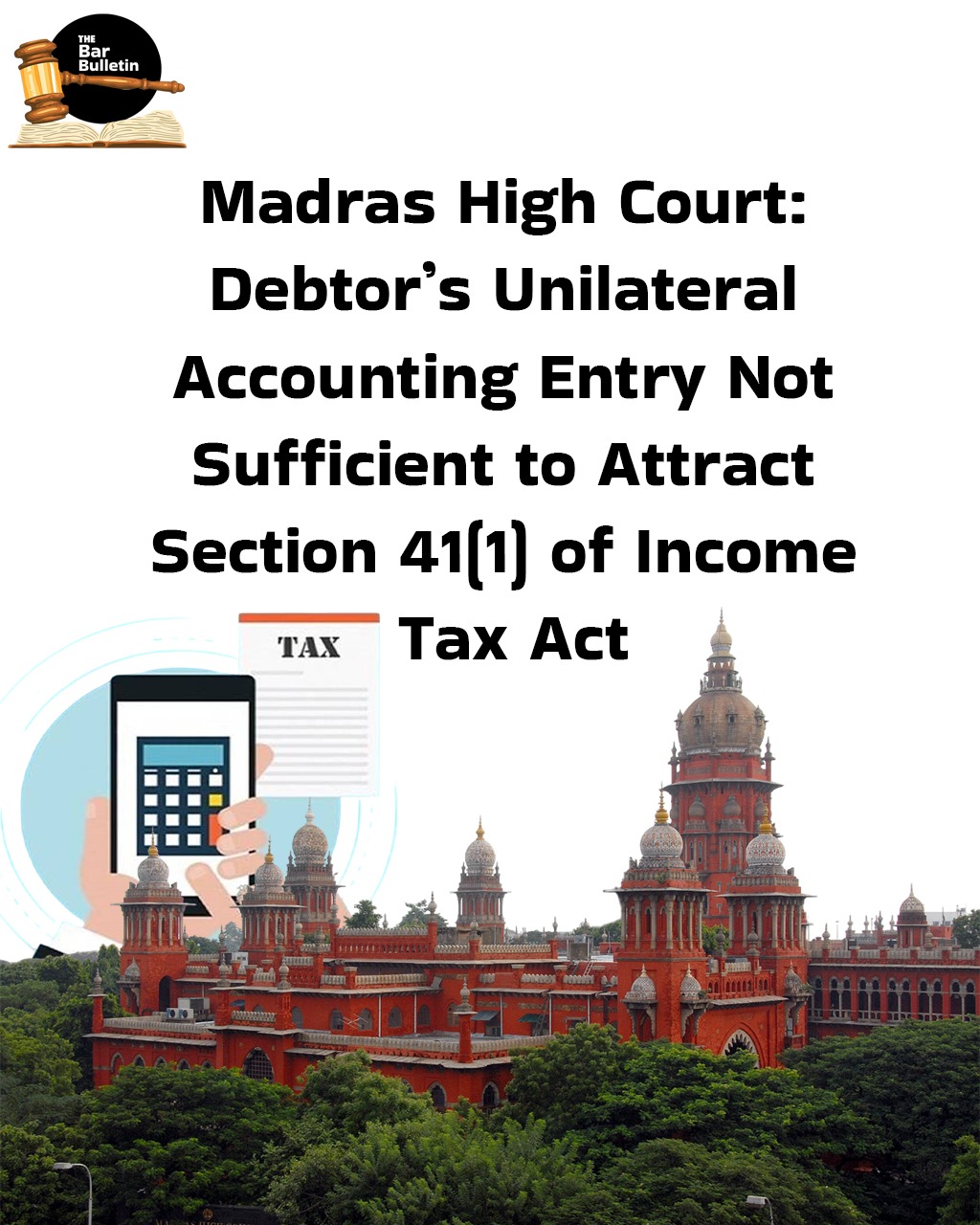The Madras High Court ruled that mere entry in the books of account of the debtor made unilaterally without any act on the part of the creditor will not enable the debtor to say that the liability has come to an end, and hence, it will not confer any benefit on the debtor as contemplated by Section 41(1) of the Income Tax Act. The Court gave this ruling by referring to the decision of the Apex Court in CIT vs. Sugauli Sugar Works P Ltd [236 ITR 518], which held that expiry of the period of limitation prescribed by the Limitation Act could not extinguish the debt, but it would only prevent the creditor from enforcing the debt.
The Division Bench, comprising Chief Justice K.R. Shriram and Justice Sundar Mohan, upheld the concurrent findings of the CIT(A) and the ITAT that the sub judice matter which was yet to be adjudicated by the High Court, will not lead to a presumption regarding cessation of liability on the part of the respondent-assessee in respect of payments to be made to SICAL, and hence, provision of Section 41(1) cannot be invoked in such case.
In the present case, the AO found that the respondent’s books of account reflected an accumulated outstanding amount of Rs. 26.56 crores, out of which a sum of Rs. 15.04 crores represented provisions for liabilities attributable to earlier years. On being asked, the respondent informed that it has filed a civil suit for recovery of dues against one SICAL, which was pending adjudication. The AO, however, treated this provision as contingent and opined that since neither the liability had crystallized nor had it accrued due to the ongoing legal dispute, and the respondent had not written off the same in its books even after lapse of three years, the AO treated the transaction as ‘cessation of trading liability’ and taxed the sum of Rs.15.04 crores u/s 41(1).
Negating the reasoning of the AO, the High Court answered the issue in favour of the respondent and maintained status quo on similar findings of the CIT(A) and the ITAT that the provision pending in the account books relating to the claim by SICAL on the respondent cannot be treated as income by cessation of liability under Section 41(1) on the ground that the suit by the respondent against SICAL was pending consideration.
Appearances:
Advocate T. Ravi Kumar, for the Appellant
Advocate A.S. Sriraman, for the Respondent
![]()



